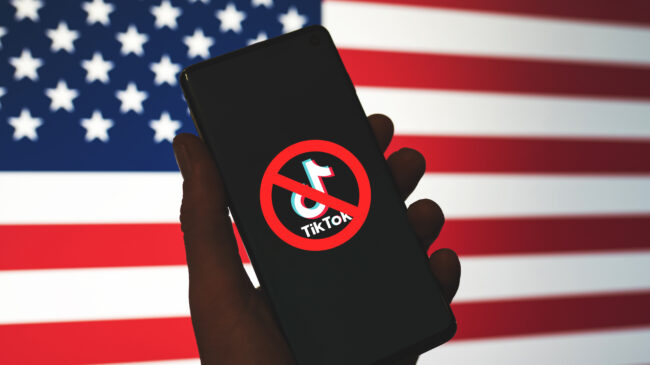TikTok has become something of a cultural phenomenon, attracting millions of users worldwide with its short-form videos and diverse content. However, concerns over data privacy and national security resulted in the U.S. House of Representatives recently passing a bill that would force TikTok’s Chinese-based parent company, ByteDance, to divest TikTok or remove the social media platform from app stores in the United States.
Implementing the House bill’s effective ban on TikTok would be a shortsighted and counterproductive approach that undermines free expression and innovation and extends undue power to the executive branch. Similar approaches seeking to regulate or ban social media have faced repeated failure under court scrutiny because they violate the First Amendment right to free speech without a compelling government interest and a narrowly tailored solution.
Concerns about China exploiting opportunities to access sensitive information from the U.S. government may be real (even if they suggest that our government tighten its cybersecurity). But TikTok is not Chinese-owned. Bytedance is mostly owned by international and U.S. investors, TikTok’s algorithms are housed on the cloud in the United States, and the company’s chief executive is Shou Chew, who is Singaporean. While the Chinese government likely has some level of access to its domestic companies, there is no evidence it is running any operational or algorithmic aspect of TikTok.
Meanwhile, banning TikTok would infringe upon the rights enshrined in the First Amendment. TikTok is a platform for individuals to share their creativity, ideas, and perspectives with a global audience. By restricting access to TikTok, the government would stifle this expression and impede individuals’ rights to communicate and connect freely.
The House-passed legislation also does not just exclusively target TikTok. The bill grants the executive branch broad discretion in determining which countries are “foreign adversaries” to force divestitures from a long list of technology-based business operations like collecting user data and operating websites. Politicians thinking they have the right to decide whether a company or service is adversarial, despite its popularity with consumers, is concerning. If this bill becomes law, it would restrict access for American users and undermine the principles of a free and open internet on a global scale.
For example, the ban could also inadvertently capture firms like Govee, a popular lighting company that uses an accompanying application to collect user data. Govee and potentially hundreds of other companies like Temu could get swept up in the undercurrent of a foreign adversary ban. And a ban could be used to go after companies owned by countries viewed as ‘political enemies’ at any given time.
A ban would also have far-reaching implications for innovation and entrepreneurship in the United States. TikTok has provided a platform for aspiring creators, artists, and entrepreneurs to showcase their talents and build communities. Many small businesses and independent creators rely on TikTok as a marketing tool to reach new audiences and grow their brands. A ban on TikTok would disrupt these economic opportunities and stifle innovation for small businesses.
While the government should be doing everything it can to protect American data from bad actors, there are more pertinent areas of defense, such as upgrading cybersecurity to defend against hackers. To suggest that TikTok presents the most serious national security threat to our country undermines the real threat of cyberhacks, which Congress continually fails to address successfully. Instead of fixating on social media, Congress should redirect its energy towards data security.
It is not the role of Congress to tell consumers what they can and cannot do with their data and attention. Congress should stick to ensuring the security of sensitive federal data and technology systems and perhaps help educate consumers on the risks of data sharing with some commercial providers. The TikTok bill passed by the House and headed to the U.S. Senate uses national security as a guise to accomplish the real goal of exerting more political control over social media. Instead, policymakers should address national security without infringing upon free trade and the right of free speech.

